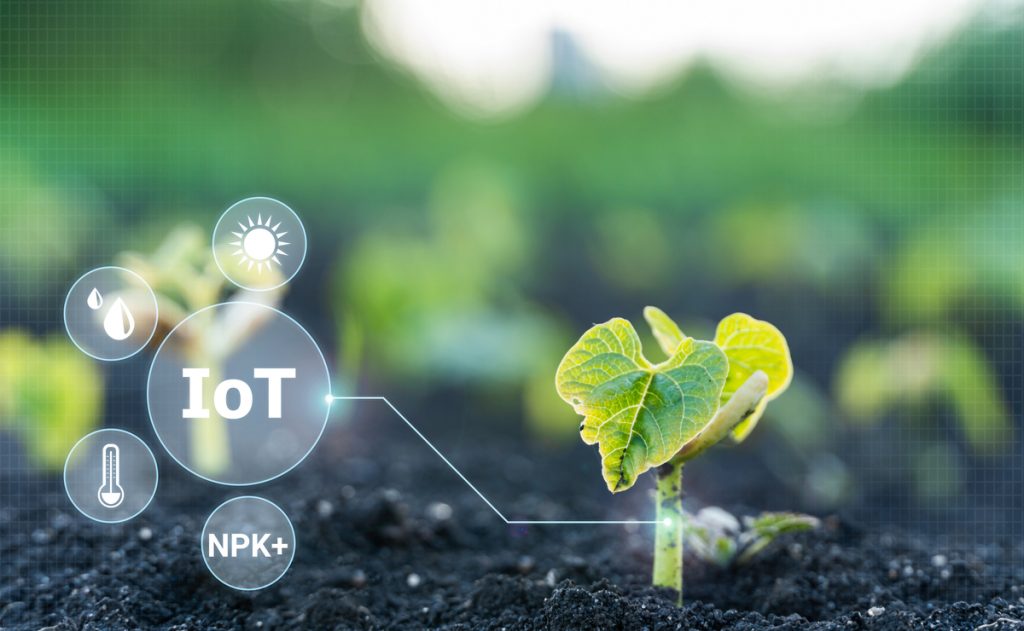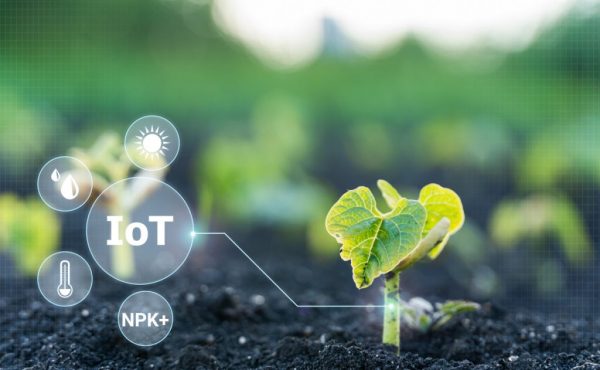The agriculture industry in Nigeria has great potential for growth and development, with the majority of the population relying on farming as a source of income and food. However, the sector faces several challenges, including poor infrastructure, limited access to information, and climate change. The adoption of Internet of Things (IoT) technology in agriculture, also known as Agri-IoT, can help to address some of these challenges and improve productivity, efficiency, and sustainability.
Read more about Agriculture
IoT refers to a network of connected devices that can communicate and exchange data without human intervention. In the context of agriculture, IoT devices can include sensors, drones, and other automated systems that collect and analyze data from farms, crops, and livestock. This data can be used to make informed decisions about planting, harvesting, and other farming practices, as well as to improve the management of resources such as water, fertilizer, and pesticides.
The impact of IoT in agriculture can be seen in several areas, including:
Precision agriculture: IoT technology can help farmers to identify areas of their farm that require attention and manage their resources more efficiently. Sensors can be used to monitor soil moisture levels, temperature, and other environmental factors that affect crop growth. This data can then be analyzed to determine the optimal planting time, the most effective irrigation schedule, and the appropriate use of fertilizers and pesticides.
Livestock management: Internet of Things technology can help to monitor the health and well-being of livestock, reducing the risk of disease and improving animal welfare. Sensors can track the location and movement of animals, monitor their temperature and heart rate, and detect signs of illness or distress.
Supply chain management: Internet of Things technology can help to improve the efficiency and transparency of the agricultural supply chain, from farm to market. Sensors can be used to track the location and condition of crops and livestock during transportation, ensuring that they reach their destination in the best possible condition.
Sign up for the Connect Nigeria daily newsletter
Climate adaptation: IoT technology can help farmers to adapt to the effects of climate change, such as drought, flooding, and extreme weather events. Sensors can be used to monitor weather conditions and predict changes in climate patterns, allowing farmers to adjust their planting schedules and farming practices accordingly.
Adopting IoT technology in agriculture in Nigeria requires several steps:
-
Infrastructure Development
IoT technology relies on a robust and reliable network infrastructure to function effectively. In Nigeria, this means developing a strong telecommunications network, including broadband internet and mobile connectivity, to ensure that farmers have access to the necessary technology and data.
-
Data Collection
IoT technology requires the collection and analysis of large amounts of data. This data must be accurate, reliable, and relevant to the specific needs of farmers. This requires the development of appropriate sensors, data analytics platforms, and other tools to collect and analyze data.
-
Training and Education
Adopting IoT technology in agriculture requires a significant investment in training and education for farmers and other stakeholders. This includes providing training on how to use the technology, how to interpret the data, and how to make informed decisions based on the data.
-
Government Support
The adoption of IoT technology in agriculture requires support from the government, including policies and regulations that promote the use of technology and ensure that farmers have access to the necessary resources and infrastructure.
Register to attend the CN Business Mixer
Conclusion
The adoption of IoT technology in agriculture in Nigeria has the potential to transform the sector, improving productivity, efficiency, and sustainability. However, it requires a significant investment in infrastructure, data collection, training, and government support. By embracing IoT technology, Nigerian farmers can overcome some of the challenges they face and build a more resilient and prosperous agriculture industry.
Featured Image Source: TechDemand
Got a suggestion? Contact us: [email protected]


